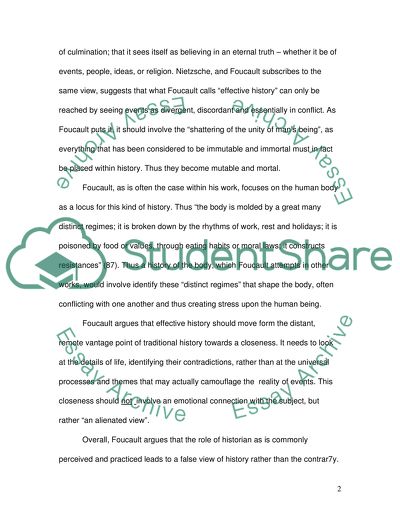Foucault in Nietzsche, Genealogy, History Essay Example | Topics and Well Written Essays - 500 words. Retrieved from https://studentshare.org/psychology/1534389-what-was-the-primary-issues-or-problems-for-foucault-in-defining-history-as-appeared-in-nietzsche-genealogy-history
Foucault in Nietzsche, Genealogy, History Essay Example | Topics and Well Written Essays - 500 Words. https://studentshare.org/psychology/1534389-what-was-the-primary-issues-or-problems-for-foucault-in-defining-history-as-appeared-in-nietzsche-genealogy-history.


